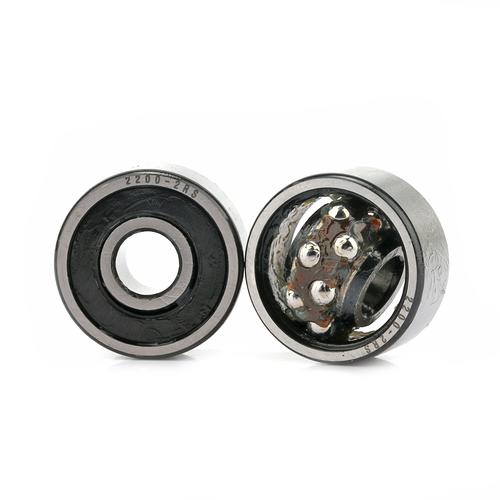Top 5 Factors to Consider When Choosing Ball Bearings Suppliers Worldwide
Ball bearings suppliers play a critical role in global manufacturing by providing precision components for machinery across industries. Selecting the right supplier ensures product longevity, cost-efficiency, and compliance with international quality standards.
Table of Contents
1. top ball bearings suppliers worldwide2. how to choose ball bearings suppliers
3. ball bearings suppliers certification standards
4. ball bearings suppliers price comparison
5. custom ball bearings suppliers
1. Top Ball Bearings Suppliers Worldwide

The global market for ball bearings suppliers is dominated by industry leaders such as SKF, NSK, Timken, and Schaeffler. These suppliers maintain ISO 9001 certifications and operate manufacturing facilities across multiple continents. SKF's patented spherical roller bearings and NSK's ultra-high-speed bearings exemplify technological advancements. Regional leaders like NTN Corporation in Asia and RBC Bearings in North America offer specialized solutions for aerospace and automotive sectors. Procurement managers should evaluate suppliers based on production capacity, lead times, and R&D investment. Emerging suppliers in Eastern Europe and Southeast Asia are gaining traction through competitive pricing and localized logistics networks.
2. How to Choose Ball Bearings Suppliers
Selecting optimal ball bearings suppliers requires technical and commercial analysis. Begin by verifying AS9100 or IATF 16949 certifications for industry-specific compliance. Conduct factory audits to assess CNC machining capabilities and quality control processes. Evaluate material traceability systems for raw steel sourcing. Compare MOQ requirements against your annual consumption patterns. Analyze warranty terms for defect coverage duration and replacement policies. Utilize third-party inspection services like SGS or TÜV for unbiased product verification. Consider suppliers offering CAD file support and engineering consultation for custom applications.
3. Ball Bearings Suppliers Certification Standards
International certifications distinguish premium ball bearings suppliers. ISO 14001 demonstrates environmental management compliance, crucial for EU market access. ABMA standards govern dimensional accuracy and load ratings. Suppliers serving defense contracts typically hold NADCAP accreditation. Medical-grade bearing providers require ISO 13485 certification. Automotive suppliers must maintain PPAP documentation for OEM approvals. The CE mark indicates compliance with European Machinery Directive safety requirements. Always verify certificate validity through accreditation body databases rather than relying on supplier claims.
4. Ball Bearings Suppliers Price Comparison
Price structures vary significantly among ball bearings suppliers based on order volume and material specifications. Chrome steel bearings typically cost 15-20% less than stainless steel variants. Bulk orders above 10,000 units often qualify for tiered discounts. Compare FOB prices versus CIF terms when importing. Chinese suppliers like C&U Group offer competitive pricing starting at $0.85 per unit for standard 6200 series bearings. European suppliers average $1.20-$1.50 per unit but include extended warranties. Utilize online platforms like Thomasnet or Alibaba for real-time price benchmarking. Negotiate consignment stock agreements for high-volume recurring orders.
5. Custom Ball Bearings Suppliers
Specialized ball bearings suppliers provide tailored solutions for unique operational requirements. Customization options include modified cage designs for extreme temperatures, hybrid ceramic-steel bearings for EMI resistance, or food-grade lubrication for processing equipment. Suppliers like Boca Bearing offer bore diameters from 1mm to 1500mm with precision tolerances up to ABEC 7. Prototype development typically takes 4-6 weeks using 3D printing and CNC prototyping. Review suppliers' metallurgical testing capabilities for custom alloy development. Ensure proper IP protection agreements are in place for proprietary bearing designs.
Understanding these five critical aspects of ball bearings suppliers empowers procurement decisions. From global market leaders to cost optimization strategies and specialized customization, each factor contributes to operational excellence. Certified suppliers with transparent pricing models and technical support ensure long-term supply chain reliability. Continue reading to implement these insights into your supplier selection process.
Conclusion
Selecting premium ball bearings suppliers requires comprehensive evaluation of certifications, pricing models, and technical capabilities. By prioritizing suppliers with robust quality systems and customization expertise, manufacturers can enhance equipment performance while controlling costs. Always validate claims through independent audits and maintain diversified supplier relationships for risk mitigation.




 8613869596835
8613869596835